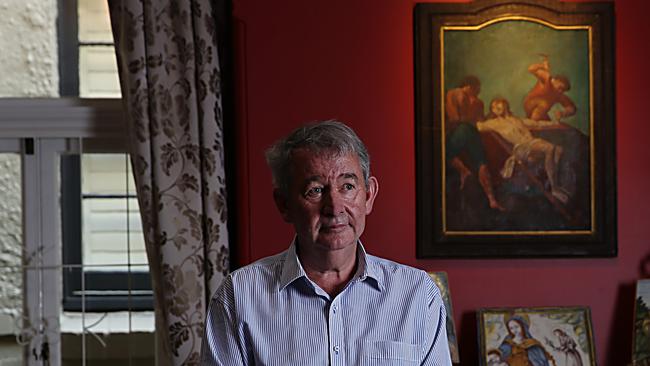Greg Craven calls for limit on foreign students
Greg Craven has called for strict new regulation of the international education industry, with a limit on students from any one country.

Former Australian Catholic University vice-chancellor Greg Craven has called for strict federal government regulation of the struggling international education industry with a ceiling on the proportion of students from any one country.
Without mentioning China — which last year supplied 38 per cent of international students enrolled in Australian universities — Professor Craven said the size and composition of the intake should be linked to an immigration policy that benefited Australia’s interests.
Professor Craven — a conservative-leaning vice-chancellor who led ACU for 13 years until his recent retirement — said it was “desperately important” for international students to return so their fee revenue could fund university research.
They are barred from entering Australia by the COVID-19 border closure.
“I absolutely want the Group of Eight and other great research universities in this country to be doing research and they need money,” he told a seminar on Tuesday held by the University of Melbourne’s Centre for the Study of Higher Education.
“But I would do it in a different way. I would strictly regulate it. I would have an overall national intake strategy.”
He called for limits on the proportion of international students from any one country and limits on the proportion of international students enrolled in any one course. International students are concentrated in business degrees and dominate the student body in many university business schools.
Professor Craven said he would “specifically link” the number of course places for international students to a national immigration policy that was based on skill requirements.
Last year the pandemic cost universities $1.8bn in lost international student fee revenue.
Professor Craven said the situation was a disaster and universities had built up the international student industry for the “grubbiest of reasons” without undertaking serious risk analysis: “We wanted money and we wanted buildings and we wanted (university) rankings.
“And for years we knew that the quality of teaching to our overseas students and the interaction between our overseas students and our national students was not good.”
Renowned as a gadfly, Professor Craven told the seminar: “I hope that I’ve irritated everybody at least once.”
He said universities were hopeless in their relations with government and had a particular problem in dealing with conservative governments: “The problem is we say nasty things behind their back. They’re quite aware of that and they’re quite capable of resenting that.”
He said that when meeting Liberal ministers in company with other vice-chancellors he would have to tell them: “For god’s sake, don’t talk about social justice, talk about opportunity. Speak the patois.”
Universities were notorious among politicians “as being the worst group of people to deal with”, Professor Craven said.
Too many vice-chancellors wanted to promote their university research, seemingly unaware this did not resonate well with politicians of either party. “Universities, generally speaking, have no idea of their political strong points. Our biggest strong point politically, to any minister of any party, is that we educate kids to get jobs,” he said.




To join the conversation, please log in. Don't have an account? Register
Join the conversation, you are commenting as Logout